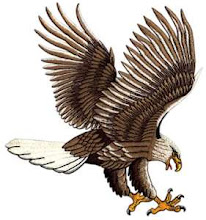

Douglas A. Munro, a signalman first class of the United States Coast Guard, died heroically on Guadalcanal September 27, 1942, after succeeding in his assignment, for which he had volunteered, to evacuate a detachment of Marines from a point where enemy opposition developed beyond anticipated dimensions. Munro's final words were "Did they get off?"
Douglas Albert Munro was born in Vancouver, Canada, of American parents, on October 11, 1919, but spent his entire life previous to his enlistment in South Cle Elum, Washington. His parents are Mr. and Mrs. James Munro of South Cle Elum. Douglas Munro was educated at the South Cle Elum Grade School and was graduated from the Cle Elum High School in 1937. He attended the Central Washington College of Education for a year and left to enlist in the United States Coast Guard in 1939. He had an outstanding record as an enlisted man and was promoted rapidly through the various ratings to a signalman, first class.
In the action [where he was killed in action], Munro had already played an important part, since he was in charge of the original detachment of ten boats that had landed the Marines at the scene. He had successfully got them ashore and then had headed his boats back to a previously assigned position. Almost immediately upon his return, he was advised by the officer in charge that conditions had been different than had been anticipated and that it was necessary to evacuate the men immediately. Munro volunteered for the job of heading the boats for the evacuation. In charge of the rescue expedition, he brought the boats in-shore under heavy enemy fire and proceeded to evacuate the men on the beach. When most of them were in the boats, complications arose in evacuating the last men, whom Munro realized would be in the greatest danger. He accordingly so placed himself and his boats that they would serve as cover for the last men to leave. It was thus that he was fatally wounded -- protecting the men after he had evacuated them. He remained conscious sufficiently long only to say four words: "Did they get off?" He died, therefore, with the realization that his mission had succeeded and his final assignment had been carried out.
In addition to the Medal of Honor, Munro was also awarded, posthumously, the Purple Heart Medal, and was eligible for the American Defense Service Medal, the Asiatic-Pacific Area Campaign Medal, and the World War II Victory Medal.
Medal of Honor Citation
Rank and organization: Signalman First Class, U.S. Coast Guard Born: 11 October 1919, Vancouver, British Columbia. Accredited to Washington. Citation: For extraordinary heroism and conspicuous gallantry m action above and beyond the call of duty as Petty Officer in Charge of a group of 24 Higgins boats, engaged in the evacuation of a battalion of marines trapped by enemy Japanese forces at Point Cruz Guadalcanal, on 27 September 1942. After making preliminary plans for the evacuation of nearly 500 beleaguered marines, Munro, under constant strafing by enemy machineguns on the island, and at great risk of his life, daringly led 5 of his small craft toward the shore. As he closed the beach, he signaled the others to land, and then in order to draw the enemy's fire and protect the heavily loaded boats, he valiantly placed his craft with its 2 small guns as a shield between the beachhead and the Japanese. When the perilous task of evacuation was nearly completed, Munro was instantly killed by enemy fire, but his crew, 2 of whom were wounded, carried on until the last boat had loaded and cleared the beach. By his outstanding leadership, expert planning, and dauntless devotion to duty, he and his courageous comrades undoubtedly saved the lives of many who otherwise would have perished. He gallantly gave his life for his country.




No comments:
Post a Comment